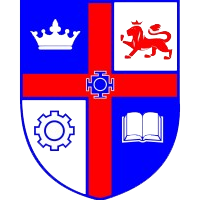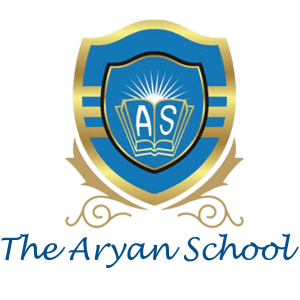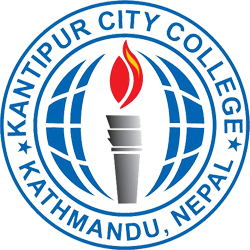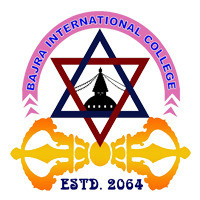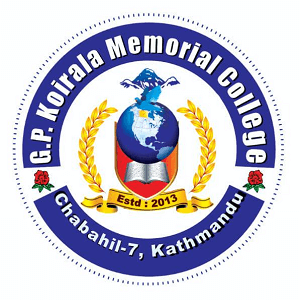Overview
Overviews of BCA at Ratna Rajya Laxmi Campus, Kathmandu, Nepal (affiliated with TU)
The Bachelor of Computer Application (BCA) is offered by Ratna Rajya Laxmi Campus (RR Campus), Pradashani Marga, Kathmandu, and is affiliated with Tribhuvan University (TU).
Course Overview
The Bachelor of Computer Application (BCA) program at Ratna Rajya Laxmi Campus is designed to equip students with comprehensive knowledge of computer science, information technology, and related applications in diverse professional settings. The BCA program delves into programming languages, database management, network administration, operating systems, and software engineering as an undergraduate course.
It aims to create versatile IT professionals who adapt to the rapidly evolving technological landscape. This curriculum's structure ensures that students gain both theoretical foundations and practical skills, bridging the gap between academic learning and real-world needs.
By combining a robust academic framework with experiential learning opportunities, the program fosters graduates who are ready to address the challenges of modern businesses, government institutions, and non-profit organizations. Whether you want to excel in software development, web design, systems management, or emerging fields like AI, the BCA at RR Campus paves the way for a meaningful career in technology.
Program Duration
The BCA program is typically four years and divided into eight semesters. Each semester is approximately stypically lastsng, ensuring in-is depth exposure to every course module. The structured timeline allows for continuous evaluation, helping students stay on track with their studies while offering ample opportunities for hands-on projects, internships, or independent research.
By the end of the four years, students gain specialized knowledge in computing fields and develop a strong general aptitude for analytical thinking and effective communication.
Key Points on Duration and Structure
-
Total Duration: 4 years (8 semesters)
-
Academic Credits: Distributed evenly, ensuring balanced coursework
-
Continuous Evaluation: Internal assessments, assignments, presentations, and semester-end examinations
-
Internships or Practical Projects: Common in later semesters to integrate practical work experience
-
Thesis/Project Work: May be required in the final year, focusing on a specialized area of study
Eligibility Criteria
To enroll in the BCA program at RR Campus, applicants must hold a +2 (10+2) qualification or equivalent from a recognized board or institution. A minimum grade—commonly D+ in all subjects—is stipulated to ensure basic academic readiness. Applicants should also meet the specific cut-off or merit level set by the campus and Tribhuvan University guidelines.
Standard Requirements
-
Completion of +2 (10+2) or equivalent in any discipline (Science, Management, Humanities, etc.)
-
Minimum D+ grade in all subjects or equivalent GPA
-
Submission of transcripts, character certificates, and relevant documents
-
Satisfactory performance in entrance examinations mandated by Tribhuvan University (if applicable)
These clear and concise eligibility guidelines ensure that students have the foundational readiness to thrive in a rigorous academic environment focused on technology and computer applications.
Admission Process
The admission process for the BCA program at Ratna Rajya Laxmi Campus revolves around transparency and merit-based selection. Applicants must generally fill out an application form provided by the campus and submit relevant documents, including academic transcripts and certificates. Additionally, prospective students often must sit for an entrance exam administered by Tribhuvan University or RR Campus under TU's standard guidelines.
Steps for Admission
-
Application Submission: Please accurately complete the application form from the campus admissions office and submit all necessary documents.
-
Entrance Examination: Empower for and appear in the test, which evaluates fundamental areas such as mathematics, English, and logical reasoning.
-
Results & Merit List: Check if your name appears on the merit list based on your entrance exam performance and academic qualifications.
-
Interview/Counseling: Some candidates may undergo a brief interview or counseling session to discuss program expectations.
-
Enrollment & Fee Payment: Once selected, complete the enrollment by paying the initial fee installment and finalizing all formalities.
Course Outline
The BCA curriculum is designed to provide a solid grounding in core computing concepts while allowing students to explore specialized areas of interest. It blends theoretical learning, practical lab sessions, assignments, and industry-oriented projects.
Detailed Curriculum
-
Foundation Courses
-
Introductory Mathematics for Computing
-
Fundamentals of Information Technology
-
Basic Electronics
-
Communication Skills & English Language Proficiency
-
Core Computing Courses
-
Programming in C, C++
-
Data Structures & Algorithms
-
Database Management Systems
-
Operating Systems (Linux/Windows)
-
Software Engineering Principles
-
Web Technologies (HTML, CSS, JavaScript)
-
Computer Networks & Security
-
Elective Courses
-
Mobile Application Development
-
Advanced Java Programming
-
Artificial Intelligence & Machine Learning Fundamentals
-
Data Analytics & Big Data Technologies
-
E-commerce & Digital Marketing
-
Project Work/Internships
-
Real-world Project in Collaboration with an Industry or Organization
-
Practical Internship for Hands-on Experience
-
Thesis or Capstone Project
Subjects Offered
While the exact subjects may vary depending on TU guidelines and periodic curriculum updates, here is a typical list of courses you can expect throughout the BCA program at RR Campus:
-
Fundamentals of IT
-
C Programming
-
Discrete Mathematics
-
Digital Logic & Computer Organization
-
Data Structures & Algorithms
-
Object-Oriented Programming (C++/Java)
-
Database Management Systems
-
Web Technologies
-
Operating Systems
-
Computer Networks
-
Software Engineering
-
System Analysis & Design
-
Mobile Application Development
-
E-commerce & Digital Marketing
-
Data Analytics
-
Electives (AI, Machine Learning, Cryptography, etc.)
-
Project Work/Internship
Program Objectives
The primary objectives of the BCA program are to:
-
Equip students with fundamental knowledge in computer science and information technology.
-
Develop professional competencies in software development, system analysis, project management, and related IT fields.
-
Foster analytical skills and innovative thinking required for problem-solving in technology-driven environments.
-
Encourage the practical application of theoretical concepts through projects, lab sessions, and internships.
-
Promote ethical and responsible practices in computing, emphasizing digital security and social responsibility.
-
Prepare graduates to adapt to evolving technologies and meet industry challenges confidently and professionally.
Teaching Methodology
The teaching methodology for the BCA program at RR Campus hinges on a balanced blend of lectures, interactive discussions, lab sessions, and project-based learning. Instructors utilize multimedia presentations, case studies, and group assignments to illustrate real-world scenarios, making technology concepts more relatable and easier to grasp. Students are encouraged to experiment with coding, manage mock projects, and collaborate in teams to sharpen their communication and interpersonal skills. Additionally, regular seminars and guest lectures by industry experts provide insights into emerging technologies and trends, ensuring that learning remains current, practical, and aligned with workplace demands.
Learning Outcomes
Upon successful completion of the BCA program, students can expect to achieve the following:
-
Proficiency in Programming: Can write efficient, bug-free code in multiple languages.
-
Database Management Skills: Understanding of designing, optimizing, and maintaining relational and non-relational databases.
-
System Analysis & Design: Ability to evaluate system requirements, architect solutions, and manage the full software development lifecycle.
-
Technical Problem-Solving: Skillful approach to diagnosing and resolving complex IT challenges.
-
Network & Security Acumen: Awareness of computer networking fundamentals and data security principles.
-
Collaboration & Teamwork: Experience in working cohesively with peers on group projects and IT deployments.
-
Innovation & Adaptability: Readiness to embrace new tools, platforms, and methodologies in the dynamic tech landscape.
-
Effective Communication: Competence in clearly conveying technical concepts in written and verbal formats.
Future Scope
The future scope of the BCA program is exceptionally promising, given the escalating demand for IT professionals. Industries worldwide, spanning finance, healthcare, education, e-commerce, and entertainment, rely on software solutions and digital frameworks to operate efficiently. As technology advances—often rapidly—BCA graduates remain relevant because of their broad skill set in programming, databases, networks, and cybersecurity.
Moreover, the evolution of AI, Machine Learning, Cloud Computing, and Blockchain opens new avenues for specialized roles. Graduates can look beyond immediate employment to opportunities in research, product development, academia, or even entrepreneurial ventures within the IT domain. This versatility ensures that a BCA degree is not only valuable in the present but will continue to be a robust foundation for long-term growth and innovation.
Career Prospects
BCA graduates from the RR Campus can venture into multiple career paths shaped by local and global market trends. Potential job roles include:
-
Software Developer/Programmer: Building desktop, web, or mobile applications.
-
Database Administrator: Overseeing the storage, organization, and security of critical data.
-
Network Administrator/Engineer: Manage network infrastructure and ensure seamless connectivity.
-
IT Consultant: Offering specialized solutions and strategy formulation for diverse organizations.
-
System Analyst: Analyze organizational requirements and design efficient IT systems.
-
QA Tester: Conducting software testing to maintain and enhance product quality.
-
Web Developer: Creating and maintaining interactive websites using multiple programming languages.
-
Project Manager: Coordinating teams and resources to execute technology projects on time and within scope.
Scholarship Opportunities
Ratna Rajya Laxmi Campus recognizes the need to support deserving students through various scholarship schemes. These may include:
-
Merit-Based Scholarships: Provided to students with excellent academic performance in the entrance exam or prior studies.
-
Need-Based Scholarships: These scholarships are given to students from economically disadvantaged backgrounds, providing that financial constraints do not hinder education.
-
Government Grants: Some government or university-level grants may be available for historically underrepresented groups or high achievers.
-
Private Sponsorships: Industry partners, foundations, or philanthropists occasionally fund scholarships for technologically talented individuals.
Fees Structure
The fee structure for the BCA program at RR Campus is determined according to Tribhuvan University guidelines. Although exact figures may vary each year, several factors typically influence the overall cost:
-
Tuition Fees: Covering academic instruction, library services, and basic campus facilities.
-
Lab & Practical Fees: Allocated for maintaining computer labs, software licenses, and other IT resources.
-
Examination Fees: For semester-end exams, internal assessments, and other academic evaluations.
-
Miscellaneous Charges: Health services, campus development, and administrative fees, if applicable.
Extracurricular and Co-Curricular Activities
Extracurricular activities at RR Campus go beyond socializing and having fun; they also significantly contribute to a student's personal and professional development. Learners can enhance their creativity and nurture leadership qualities through coding clubs, robotics teams, literary societies, debate clubs, and volunteer initiatives.
These clubs often work closely with faculty advisors and external experts, offering opportunities for networking, practical skill-building, and hands-on project exposure. Participation in academic competitions, tech seminars, and workshops further fosters a sense of team spirit while promoting healthy competition among peers. Such involvements create well-rounded individuals who are both academically strong and socially responsible.
Real-World Application
The BCA curriculum is applied in the real world through practical assignments, internships, and projects that mirror industry settings. Students might develop web applications for local businesses, participate in cloud-based development for data analytics solutions, or integrate IoT devices for campus automation projects.
These experiences make theoretical concepts tangible, enhancing critical thinking and decision-making skills. Frequent interaction with organizations and non-profits, alongside faculty mentorship, helps students align academic pursuits with modern workforce requirements. Thus, BCA graduates not only grasp textbook knowledge but also understand how to deploy it effectively in various contexts.
Sustainability and Social Impact
Sustainability and social impact are increasingly integral to technological education. The RR Campus BCA program acknowledges this responsibility by weaving eco-friendly practices into course activities and IT solutions.
Students are encouraged to design software that minimizes resource usage, develop systems that optimize energy consumption, and explore IT-driven ways to address local socio-economic challenges. Seminars highlight how tech innovations can bolster sustainability, emphasizing recycling e-waste, choosing efficient data centers, or advocating for green computing.
Community engagement projects further prompt learners to reflect on emerging technologies' human and environmental implications, shaping a culture of ethical innovation.
Skill Development
Throughout the program, students gain diverse skill sets that transcend traditional computing knowledge. In addition to technical competencies like programming and database management, the curriculum emphasizes effective communication, time management, team collaboration, and creative problem-solving. Workshops on soft skills, such as leadership and conflict resolution, equip learners to thrive in multidisciplinary teams.
These lessons focus on helping students become well-rounded professionals capable of bridging technical nuances and organizational objectives in real-world environments. As a result, BCA graduates can confidently approach complex tasks, adapt to new tools, and develop solutions that resonate beyond the classroom.
Global Perspective
Modern technologies have long surpassed geographical borders, creating a borderless IT ecosystem. The BCA curriculum at RR Campus incorporates a global perspective by encouraging students to study international case studies, adopt globally recognized standards, and stay abreast of global technological advancements.
By working on cross-cultural projects and engaging with international tech communities through online forums, students gain exposure to global best practices and broaden their horizons. This global outlook ensures that graduates not only fit into local organizations. Still, it can also excel in international firms, collaborate with multinational teams, or even launch tech ventures worldwide.
Facilities and Support
At Ratna Rajya Laxmi Campus, a range of facilities and support services help BCA students excel both academically and personally:
-
Modern Computer Labs: Equipped with up-to-date hardware, licensed software, and high-speed internet for hands-on learning.
-
Digital Library: Provides access to electronic databases, e-books, and research journals essential for in-depth study.
-
Academic Advising: Faculty members and counselors are available for one-on-one sessions to discuss academic progress and career pathways.
-
IT Clubs and Seminars: Student-run clubs host workshops, coding marathons, and special talks by industry professionals.
-
Mentorship Programs: Senior students and alumni often mentor juniors, offering a supportive peer network.
-
Hostel & Cafeteria: If available, these amenities ensure a comfortable learning environment for out-of-town or busy students.
Such infrastructure and the culture of academic mentorship help foster a conducive learning and personal growth environment.
Why Choose the BCA Program?
Choosing the BCA program at RR Campus offers a targeted blend of theory and application. It exposes you to versatile computing knowledge and market-relevant skills that can set you on a path to success in modern tech-driven industries. The curriculum ensures hands-on projects, mentorship from seasoned faculty, and ample networking opportunities that boost your employability.
Moreover, the campus's commitment to continuous academic innovation means that you learn cutting-edge technologies, preparing you to tackle current and emerging challenges. This comprehensive approach aligns your learning experience with the demands of future-ready IT professionals.
Is the BCA Program Right for You?
The BCA program may be an excellent fit if you are interested in computers, coding, and problem-solving. It caters to analytical thinkers who enjoy translating abstract concepts into practical IT solutions. If you are curious about how software and hardware systems operate, eager to collaborate in teams, and motivated to keep pace with evolving technologies, then the BCA path aligns with your aspirations.
Additionally, the program welcomes students from various academic backgrounds, letting them build essential IT competencies from foundational levels. This accessibility and structured progression ensure a rewarding educational journey for driven individuals.
What is the Future of the BCA Program?
The future of the BCA program is promising as technological innovations show no signs of slowing down. Automation, AI, machine learning (ML), and cloud computing (CC) are transforming workplaces, and BCA curricula continue evolving by integrating specialized electives and advanced tools. Many graduates find global opportunities, work remotely, or become entrepreneurs launching digital products and services.
As businesses in multiple sectors embrace digital transformation, the demand for professionals with multidisciplinary skills—ranging from project management to advanced coding——will only increase. This dynamic shift highlights how the BCA program is more than an academic route; it's a stepping stone to shaping the digital future.
How Do You Improve Your Study of Computer Application Education as a Student?
Developing a robust approach to studying Computer Applications involves a mix of practice, problem-solving, and conceptual clarity. Start by mastering fundamental programming languages like C, C++, or Java. Engage in online coding challenges to sharpen your debugging and analytical skills. Continuously explore new frameworks or tools to stay updated. Team up with classmates to collaborate on projects, share insights, and learn from each other's strengths.
Seek mentor guidance from faculty or industry professionals to refine your learning path. Enable theoretical knowledge of real-world projects, internships, or open-source contributions to building experience and confidence.
Conclusion
In conclusion, the Bachelor of Computer Application (BCA) program at Ratna Rajya Laxmi Campus presents an integrated educational experience, merging foundational theories with practical immersion. Students gain technical expertise, analytical thinking, and collaborative skills—essentials for excelling in today's dynamic tech world. With a curriculum that balances programming, database management, networking, and emerging technologies, this four-year degree equips you to forge a successful career in various sectors. Scholarships, a supportive academic framework, and opportunities for extracurricular engagement further enrich your journey.
The BCA program nurtures the next generation of innovative, socially conscious IT professionals by embracing a forward-thinking approach and broadening global perspectives.
Contact Ratna Rajya Laxmi Campus's administrative office for detailed information on the BCA course, including fees, scholarships, facilities, counseling, eligibility criteria, etc.



